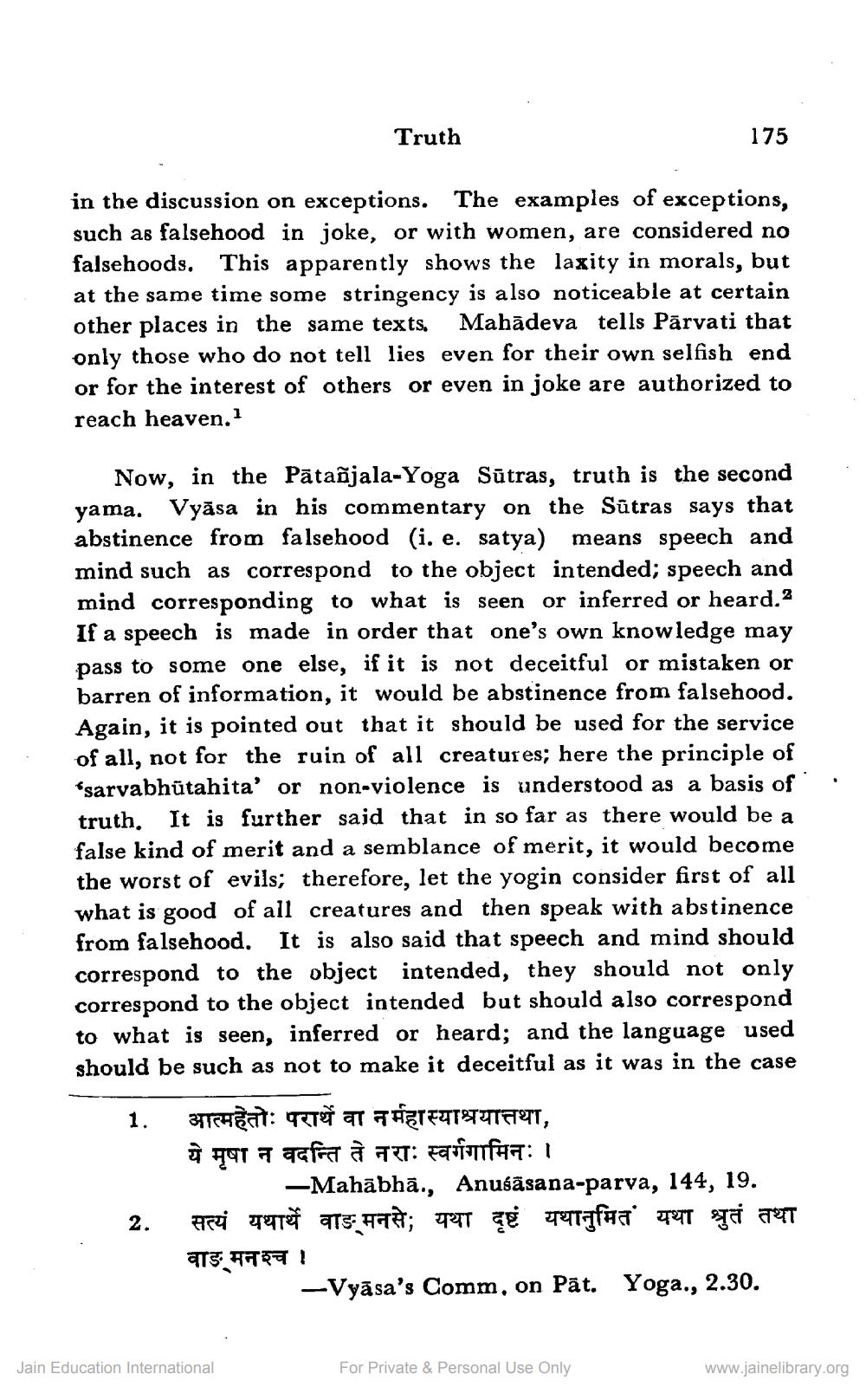________________
Truth
175
in the discussion on exceptions. The examples of exceptions, such as falsehood in joke, or with women, are considered no falsehoods. This apparently shows the laxity in morals, but at the same time some stringency is also noticeable at certain other places in the same texts. Mahādeva tells Pārvati that only those who do not tell lies even for their own selfish end or for the interest of others or even in joke are authorized to reach heaven.
Now, in the Pātañjala-Yoga Sūtras, truth is the second yama. Vyāsa in his commentary on the Sūtras says that abstinence from falsehood (i. e. satya) means speech and mind such as correspond to the object intended; speech and mind corresponding to what is seen or inferred or heard.2 If a speech is made in order that one's own knowledge may pass to some one else, if it is not deceitful or mistaken or barren of information, it would be abstinence from falsehood. Again, it is pointed out that it should be used for the service of all, not for the ruin of all creatures; here the principle of sarvabhūtahita' or non-violence is understood as a basis of truth. It is further said that in so far as there would be a false kind of merit and a semblance of merit, it would become the worst of evils; therefore, let the yogin consider first of all what is good of all creatures and then speak with abstinence from falsehood. It is also said that speech and mind should correspond to the object intended, they should not only correspond to the object intended but should also correspond to what is seen, inferred or heard; and the language used should be such as not to make it deceitful as it was in the case
1.
Theat: tot AT FÅET FATTOTETOTT, ये मृषा न वदन्ति ते नराः स्वर्गगामिनः ।
-Mahābhā., Anusāsana-parva, 144, 19. सत्यं यथार्थे वाङ्मनसे; यथा दृष्टं यथानुमित यथा श्रुतं तथा वाङ्मनश्च ।
-Vyāsa's Comm, on Pāt. Yoga., 2.30.
2.
Jain Education International
For Private & Personal Use Only
www.jainelibrary.org




